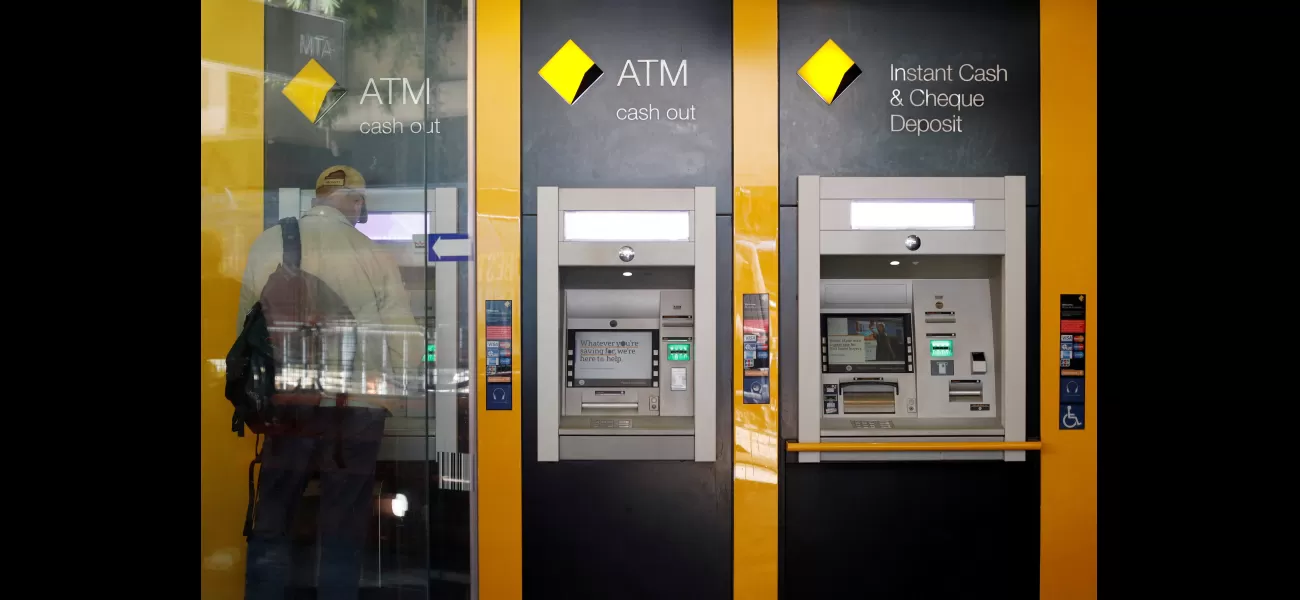Should Australia implement a 'three-mile rule' for banks?
Expert says banking code of conduct could protect regional communities' access to cash by regulating branch closures. #banking #community #cashaccess
May 27th 2024.

According to a finance expert, implementing a banking code of conduct similar to the one in the UK would be crucial in ensuring that regional communities have access to cash. A recent senate report revealed that almost 40% of bank branches in Australia were closed between 2017 and 2023, raising concerns about the impact on those who rely on cash and face-to-face banking services, particularly in remote areas and during times of crisis. The report made eight recommendations, including recognizing access to financial services as an "essential service" and creating a mandatory banking code of conduct, taking inspiration from the UK model.
Dr Angel Zhong, a finance researcher and associate professor at RMIT University, supports the idea of a mandatory banking code of conduct in Australia. She believes that banks should be required to consult with the community and obtain regulatory approval before closing a branch. She also points to the UK's "three-mile rule", which requires banks to provide free cash services within three miles for rural residents and one mile for urban dwellers. This can include not just bank branches or ATMs, but also shops that offer cash-out transactions for free, among other alternatives.
The UK's approach, which was introduced last year, aims to maintain current levels of access to cash by imposing fines on banks that fall below a minimum level of service. "By safeguarding access, they address the concerns of rural communities and vulnerable individuals," Zhong explains. However, replicating this rule in Australia may be challenging due to the country's unique geography and population distribution, according to an Australian Banking Association spokesperson. They also highlight that Australia is 32 times the size of the UK and that the banking sector is committed to ensuring cash continues to be accessible to customers.
The senate report's recommendations also include expanding Bank@Post services with Australia Post, establishing a community banking program, and considering the feasibility of a publicly owned bank. However, Zhong believes that the latter should be a "last resort" due to the history of state-owned banks in Australia. She suggests finding a balance between preserving taxpayers' money and ensuring that Australians have access to cash and banking facilities.
In conclusion, implementing a banking code of conduct and exploring alternative solutions, such as the UK's "three-mile rule", could help protect access to cash for regional communities in Australia. It is essential to consider the unique challenges of the country's geography and population distribution in finding effective solutions.
Dr Angel Zhong, a finance researcher and associate professor at RMIT University, supports the idea of a mandatory banking code of conduct in Australia. She believes that banks should be required to consult with the community and obtain regulatory approval before closing a branch. She also points to the UK's "three-mile rule", which requires banks to provide free cash services within three miles for rural residents and one mile for urban dwellers. This can include not just bank branches or ATMs, but also shops that offer cash-out transactions for free, among other alternatives.
The UK's approach, which was introduced last year, aims to maintain current levels of access to cash by imposing fines on banks that fall below a minimum level of service. "By safeguarding access, they address the concerns of rural communities and vulnerable individuals," Zhong explains. However, replicating this rule in Australia may be challenging due to the country's unique geography and population distribution, according to an Australian Banking Association spokesperson. They also highlight that Australia is 32 times the size of the UK and that the banking sector is committed to ensuring cash continues to be accessible to customers.
The senate report's recommendations also include expanding Bank@Post services with Australia Post, establishing a community banking program, and considering the feasibility of a publicly owned bank. However, Zhong believes that the latter should be a "last resort" due to the history of state-owned banks in Australia. She suggests finding a balance between preserving taxpayers' money and ensuring that Australians have access to cash and banking facilities.
In conclusion, implementing a banking code of conduct and exploring alternative solutions, such as the UK's "three-mile rule", could help protect access to cash for regional communities in Australia. It is essential to consider the unique challenges of the country's geography and population distribution in finding effective solutions.
[This article has been trending online recently and has been generated with AI. Your feed is customized.]
[Generative AI is experimental.]
0
0
Submit Comment





